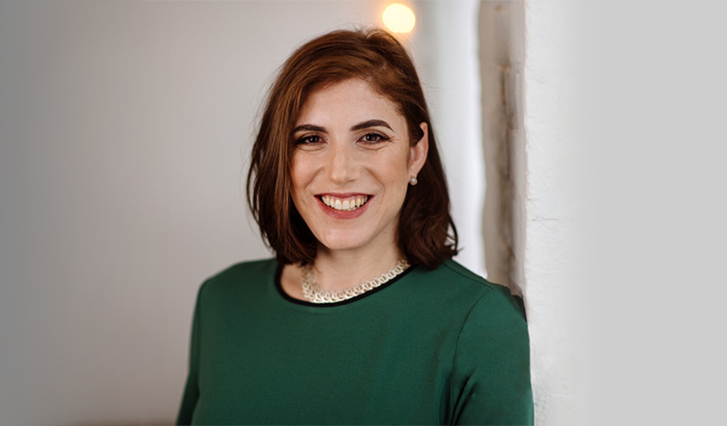précis Interview: Dafna Rand


Dafna Rand joined CIS in July as the 2025-2026 Robert E. Wilhelm Fellow. Dr. Rand served as the U.S. Assistant Secretary of State for Democracy, Human Rights, and Labor until January 2025. Previously, she directed the U.S. State Department’s Office of Foreign Assistance, overseeing $70 billion in annual U.S. foreign aid. Rand has held multiple positions in the U.S. government, including Deputy Assistant Secretary of State, member of the Secretary’s Policy Planning staff, and National Security Council official. Additionally, she served as a professional staff member of the U.S. Senate Select Committee on Intelligence (SSCI). Outside of government, Rand’s research and publications have focused on international security and democratic reform, particularly in the Middle East and North Africa, with two books on the subject. She has also held leadership roles at Mercy Corps and the Center for a New American Security (CNAS).
précis: Describe your journey to CIS as a Robert E. Wilhelm Fellow. Why MIT and why now?
DR: I started out on an academic path in political science. After earning my PhD at Columbia, I decided to return to the U.S. government, joining the professional staff of the Senate Select Committee on Intelligence. (I had worked in the Senate before graduate school so I knew how much I enjoyed the challenge of a fast-paced, impactful Congressional office.) While I always assumed at some point I would go back to a research career, 17 or so years have passed and I have spent most of that time working in both the legislative and executive branches (the National Security Council and the State Department).
With the end of the Biden administration, and U.S. foreign policy at a crossroads, I felt it was time to recharge intellectually. I am a strong believer in bridging the gap between academia and practice. The Wilhelm Fellowship offers a wonderful opportunity to immerse myself in the new ideas and fresh thinking on international issues coming from MIT’s faculty and students.
précis: What are you working on at MIT and what impact do you hope to make during your time as a Wilhelm fellow?
DR: I am working on three areas of research currently, all of them questions born out of my years in the U.S. government. Interestingly, some of the fiercest interagency or bureaucratic battles in the practice of foreign policy often reveal researchable questions where academic methods can be useful. First, how can we reshape U.S. diplomacy and development approaches to ensure a more disciplined, impact-oriented approach, perhaps relying more heavily on evidence and adaptive learning? Second, what are new models of multilateral organization and institutions that could enhance the protection of civilians in conflict? And third, after writing two books on political trends in the Middle East and North Africa (MENA), my interests have shifted toward the region’s energy security policies. Given the vast internal differences in mitigation, adaptation, and food/water access among MENA states, what policies can best achieve energy stability?
précis: How would you characterize the state of the U.S. State Department today versus prior to your departure?
DR: The state of the current State Department should worry us all, in terms of U.S. national security and representing Americans’ interests abroad. I believe it has been necessary for decades to undertake significant structural reform of America’s oldest federal government agency. Previous administrations, for instance, did not do enough to systematically adapt the Foreign Service to the current era of media saturation from a public diplomacy standpoint or to develop a way for talent to rise quickly in the Foreign Service or Civil Service. There were many ways to institute needed reforms to the State Department, including by adopting new hiring approaches. For example, we need different types of technologists now, experts who are both familiar with AI and can understand policymaking and bureaucracies.
Instead, President Trump and Secretary Rubio have slashed and burned. They have either randomly cut programs and people or they scanned the name of the State Department office and made a quick judgement about the work’s ideological compatibility with the America First movement. They relied on recent college grads to design the new org chart—mostly individuals with no expertise on the Department of State’s global work, in 200 Embassies. Instead, they should have first consulted the internal reformers. There are experienced experts inside the institution who have patiently tried to make change for years. Finally, it’s unclear what the strategy is behind their elimination of USAID, cuts to all foreign assistance, and reductions in force of over 1,300 DC-based staff. They have yet to articulate a national security policy or diplomatic strategy—even though articulating objectives should be the first step in any bureaucratic reform effort.
précis: Finally, what advice do you have for MIT students who are interested in pursuing a career in national security or public service?
DR: First, try out everything–including stints in the U.S. government, other governments, and international organizations; fellowships at think tanks and research organizations; and jobs in the non-profit and for-profit organizations related to the national security or foreign policy world. Only by trying out multiple environments can you decide on a career path suited to your risk tolerance, temperament, your personal practical constraints, and passions. Second, recognize that there is no such thing as a perfectly crafted, linear career path. Expect to take unexpected detours. Finally, when I first met political science professor Steve Van Evera at the MIT PhD admit weekend, he asked me: "What dragons do you want to slay?" It’s a question I often ask myself at various professional forks in the road.